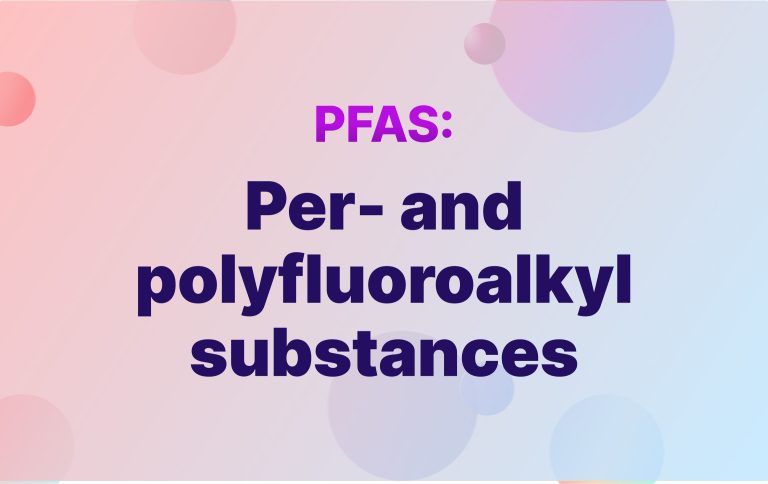Widespread Environmental Contamination
PFAS are extremely persistent in the environment, earning them the nickname “forever chemicals”. They are found in a wide range of consumer products, including non-stick cookware, water-repellent clothing, stain-resistant fabrics, and firefighting foam.
Adverse Health Effects
PFAS exposure is linked to several adverse health effects. Epidemiological studies have shown that PFAS can cause infertility, disrupt steroid hormones, and lead to thyroid, liver, and kidney disorders. They can also cause metabolic dysfunctions and oxidative stress, which damages cells by increasing reactive oxygen species formation
Regulatory and Remediation Challenges
Managing PFAS contamination is challenging due to their chemical stability and persistence. Specialized treatment methods, such as using specific coagulants, are required to minimize their environmental impact and decontaminate affected areas, including firefighting equipment
Latest PFAS News
Antidepressants Entering Waterways Are Threatening Aquatic Life
Antidepressants have been a lifeline for millions of people worldwide since the 1950s, helping them manage their mental health and improve their quality of life. However, the widespread use of these medications has led to an often-overlooked problem: pharmaceutical pollution in our waterways. As these drugs leave our bodies and enter wastewater treatment plants, they…
The Dangers of ‘Forever Chemicals’: Navigating a Path Forward
Per- and poly-fluoroalkyl substances (PFAS), commonly known as “forever chemicals,” have become a growing concern due to their potential health risks and widespread presence in our environment. These chemicals, used in a variety of everyday products for their water, oil, and stain-resistant properties, have been linked to cancer and other health issues. The recent detection…
Water Companies Face Hefty Fines for Sewage Spills, But a Holistic Approach to Waste Management is Needed
The water regulator for England and Wales, OFWAT, recently announced £168 million in fines against three water companies for sewage pollution incidents. While this may seem like a significant step towards holding these companies accountable, the reality is that these fines are unlikely to make a lasting impact unless a more comprehensive approach to waste…
Artificial Sweeteners: The Unseen Threat to Aquatic Ecosystems
As people increasingly turn to artificial sweeteners to reduce sugar intake and avoid health risks like obesity and tooth decay, the environmental impact of these substances is often overlooked. A recent study from the University of Florida has shed light on the potential harm caused by sucralose, a commonly used artificial sweetener, to freshwater ecosystems….
PFAS Impact on Your Health
Artificial Sweeteners: The Unseen Threat to Aquatic Ecosystems
As people increasingly turn to artificial sweeteners to reduce sugar intake and avoid health risks like obesity and tooth decay, the environmental impact of these substances is often overlooked. A recent study from the University of Florida has shed light on the potential harm caused by sucralose, a commonly used artificial sweetener, to freshwater ecosystems….

PFAS Chemicals Can Be Absorbed Through Skin, Study Finds
Per- and polyfluoroalkyl substances (PFAS), also known as “forever chemicals”, have been detected in various environments worldwide, from Arctic ice and polar bears to penguin colonies in Tasmania, and even in rainwater, sea spray, and dust from the International Space Station. These persistent chemicals have also been found in the blood and breast milk of…
Are PFAS chemicals found in baby wipes?
PFAS chemicals have become a major concern in consumer products, especially those used for babies and young children. These “forever chemicals” persist in the environment and human bodies for long periods. Recent studies and legal actions have highlighted the presence of PFAS in baby wipes. This has caused alarm among parents, caregivers, and health experts….
PFAS Impact on The Environment

Can Home Water Filters Remove PFAS From Tap Water?
Per- and polyfluoroalkyl substances (PFAS) are a group of man-made chemicals used in various industrial and consumer products for their resistance to heat, water, and oil. Commonly found in items like non-stick cookware, water-repellent clothing, and firefighting foams, PFAS have raised significant environmental and health concerns due to their persistence in the environment and ability…
Antidepressants Entering Waterways Are Threatening Aquatic Life
Antidepressants have been a lifeline for millions of people worldwide since the 1950s, helping them manage their mental health and improve their quality of life. However, the widespread use of these medications has led to an often-overlooked problem: pharmaceutical pollution in our waterways. As these drugs leave our bodies and enter wastewater treatment plants, they…
The Dangers of ‘Forever Chemicals’: Navigating a Path Forward
Per- and poly-fluoroalkyl substances (PFAS), commonly known as “forever chemicals,” have become a growing concern due to their potential health risks and widespread presence in our environment. These chemicals, used in a variety of everyday products for their water, oil, and stain-resistant properties, have been linked to cancer and other health issues. The recent detection…
Water Companies Face Hefty Fines for Sewage Spills, But a Holistic Approach to Waste Management is Needed
The water regulator for England and Wales, OFWAT, recently announced £168 million in fines against three water companies for sewage pollution incidents. While this may seem like a significant step towards holding these companies accountable, the reality is that these fines are unlikely to make a lasting impact unless a more comprehensive approach to waste…

What are PFAS?
Per- and polyfluoroalkyl substances (PFAS) are a large and diverse class of synthetic chemicals that have been used in various industrial and consumer applications for over 60 years. These chemicals are known for their unique properties, including resistance to heat, water, and oil, which make them highly valuable in numerous products but also raise significant…
Artificial Sweeteners: The Unseen Threat to Aquatic Ecosystems
As people increasingly turn to artificial sweeteners to reduce sugar intake and avoid health risks like obesity and tooth decay, the environmental impact of these substances is often overlooked. A recent study from the University of Florida has shed light on the potential harm caused by sucralose, a commonly used artificial sweetener, to freshwater ecosystems….